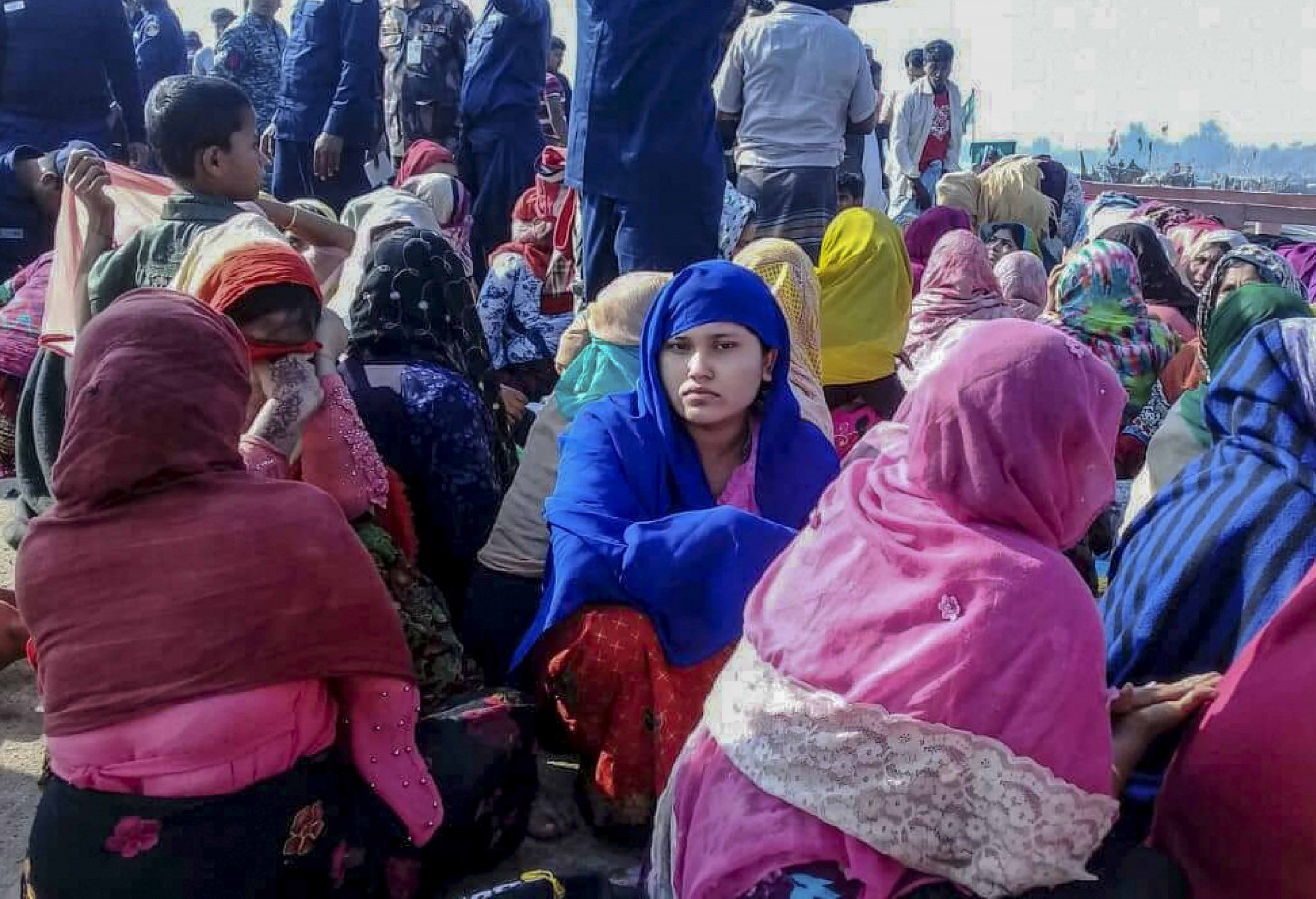Popular Reads
Top Results
Can't find what you're looking for?
View all search resultsPopular Reads
Top Results
Can't find what you're looking for?
View all search resultsIndonesia, Australia explore solution to Rohingya refugee crisis under Bali Process
Change text size
Gift Premium Articles
to Anyone
A
mid pressure from humanitarian organizations, Indonesia and Australia have moved to follow-up talks under the Bali Process framework to prepare for the possibility of another refugee crisis in the Andaman Sea, where hundreds of asylum seekers died in 2015.
In the past few weeks, hundreds of Rohingya refugees made perilous journeys across the Bay of Bengal seeking refuge in nearby countries, only to be denied entry due to the coronavirus. The COVID-19 pandemic has forced almost all countries in the region to tighten border controls.
Malaysian and Thai authorities rejected 382 refugees traveling by boats in mid-April, citing coronavirus concerns. The refugees were later rescued by Bangladesh.
Indonesian Foreign Minister Retno Marsudi and her Australian counterpart Marise Payne spoke on the phone about the Rohingya crisis and refugees on Friday, a Jakarta official said.
“They have agreed to explore and address this issue through the mechanism and within the framework of the Bali Process. The matter is currently being discussed at the senior official level,” ministry official Achmad Rizal Purnama told The Jakarta Post on Saturday.
The Bali Process, cochaired by Indonesia and Australia, was established in 2002 to facilitate discussion and information sharing about refugees, human trafficking and related transnational issues. Dozens of countries – including Bangladesh, Malaysia, Myanmar and Thailand – and numerous international agencies are members.
Reports said that boats carrying around 500 Rohingya refugees were recently sighted near Indonesian waters, prompting local Aceh authorities to ramp up patrols across the Aceh waters.
“Based on our air patrols, we have not found any boats carrying the Rohingya immigrants. We will continue to carry out air patrols for the next few days,” the Aceh Police’s water and air police (Polairud) director, Sr. Comr. Jemmy Rosdiantoro, said as quoted by kompas.com on Friday.
When asked whether Indonesia would accept the refugees if they requested to disembark on Indonesian shores, Foreign Minstry spokesperson Teuku Faizasyah said it was still a hypothetical situation.
“Actually, Indonesian policy is to prevent [refugees] from [making the journey] as boat people, right from the beginning. The voyage will jeopardize the safety of anyone on the boats, even more so if there is an element of trafficking in persons,” Faizasyah said.
Countries’ reluctance to accept refugees, especially during the pandemic, has led observers and activists to sound the alarm that the 2015 refugee crisis in the Andaman Sea could be repeated.
Read also: Rohingya refugees rejected everywhere as countries grapple with COVID-19 concerns
According to a United Nations High Commissioner for Refugees (UNHCR) report, it is estimated that 33,600 refugees and migrants of various nationalities took to smugglers’ boats in Southeast Asia in 2015. The bulk of them were Rohingya or Bangladeshi refugees. Some 370 people were believed to have died.
The failure to make an immediate response to the crisis prompted Bali Process member countries to agree to the 2016 Bali Declaration, which outlines principles and the way forward to prevent another crisis. They also granted Indonesia and Australia the authority to call a consultative meeting with affected countries in the case of influx crises.
Then-Australian foreign minister Julie Bishop, at that time, cited the lack of a coordinated response in 2015 was because there was no mechanism for the Bali Process to bring members together in a timely fashion.
The UNHCR urged earlier this month Indonesia and Australia to convene high-level discussions among Bali Process members to prevent a repeat of the crisis and to formulate possible regional responses.
But it was not clear whether the output of the ongoing talks between Indonesian and Australian diplomats would trigger a regional meeting or a regional emergency response.
Prior to the phone call between Retno and Payne on Friday, Australian newspaper The Sydney Morning Herald reported that the Australian side was “resisting triggering emergency talks with other countries” to address the crisis under the Bali Process mechanism. It reported that Australian officials maintained that the Bali Process was a forum for policy dialogue and information sharing and, therefore, should not be used to trigger an emergency operational response to a refugee crisis.
But, Saad Hammadi from Amnesty International's South Asia office reminded all that the 2016 Bali Declaration encouraged member countries to provide safety and protection to migrants, victims of human trafficking, refugees and asylum seekers.
The declaration was also followed up by the establishment of a task force on planning and preparedness, which made a commitment to saving lives when responding to “irregular maritime migration” in February this year.
Hammadi estimated at least 1,000 Rohingya were currently stranded at sea, and they could have been sailing for several weeks or even months without food or water, citing information from humanitarian agencies and local news reports.
“It's crucial that Indonesia and Australia, the Bali Process cochairs, come together to immediately convene this discussion and ensure that the Rohingya, wherever they are, are given the right to land and provided safety so that we do not see the sea become an invisible graveyard,” he said.










